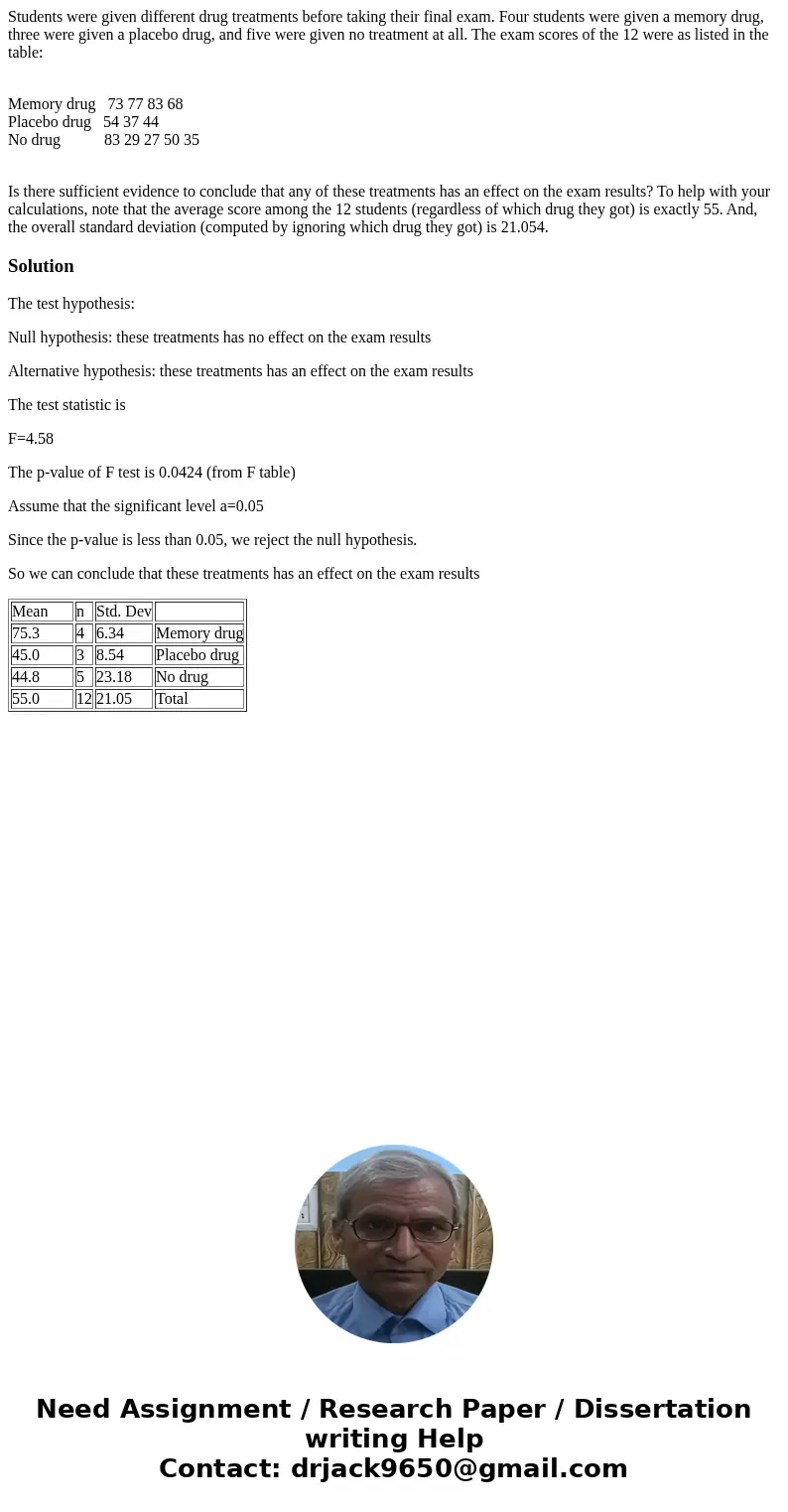Students were given different drug treatments before taking
Students were given different drug treatments before taking their final exam. Four students were given a memory drug, three were given a placebo drug, and five were given no treatment at all. The exam scores of the 12 were as listed in the table:
Memory drug 73 77 83 68
Placebo drug 54 37 44
No drug 83 29 27 50 35
Is there sufficient evidence to conclude that any of these treatments has an effect on the exam results? To help with your calculations, note that the average score among the 12 students (regardless of which drug they got) is exactly 55. And, the overall standard deviation (computed by ignoring which drug they got) is 21.054.
Solution
The test hypothesis:
Null hypothesis: these treatments has no effect on the exam results
Alternative hypothesis: these treatments has an effect on the exam results
The test statistic is
F=4.58
The p-value of F test is 0.0424 (from F table)
Assume that the significant level a=0.05
Since the p-value is less than 0.05, we reject the null hypothesis.
So we can conclude that these treatments has an effect on the exam results
| Mean | n | Std. Dev | |
| 75.3 | 4 | 6.34 | Memory drug |
| 45.0 | 3 | 8.54 | Placebo drug |
| 44.8 | 5 | 23.18 | No drug |
| 55.0 | 12 | 21.05 | Total |

 Homework Sourse
Homework Sourse